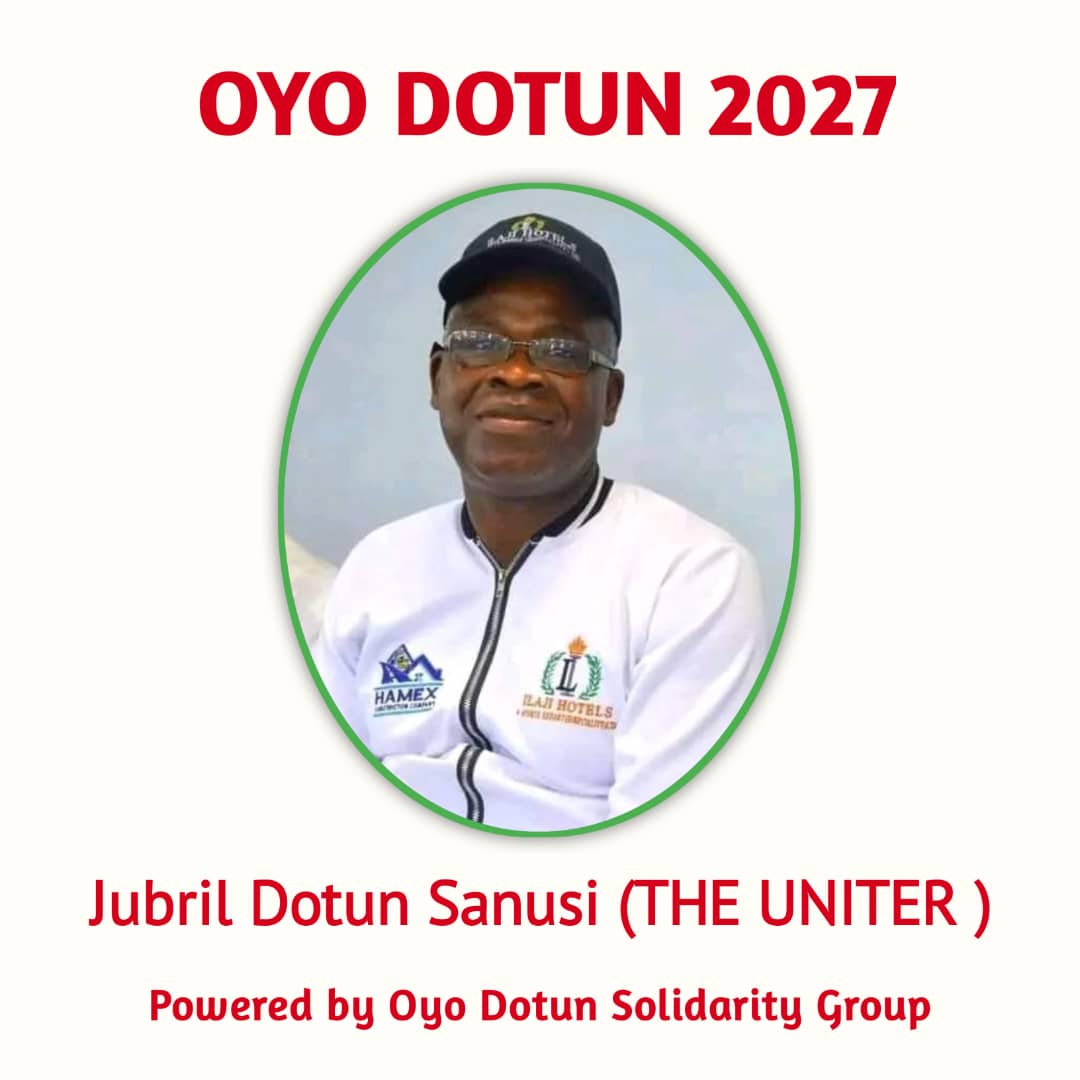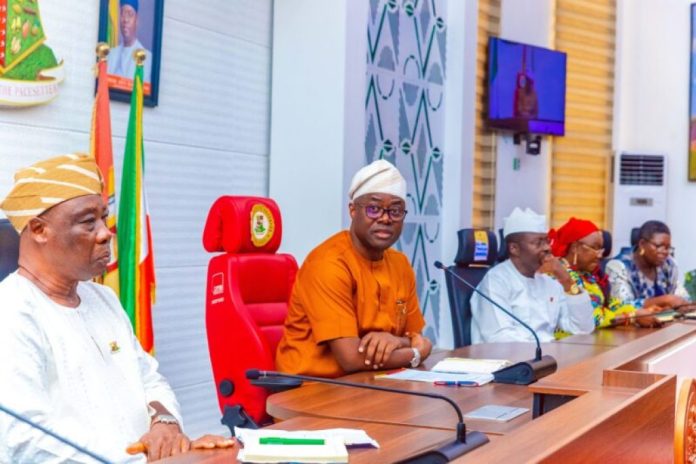It is often said that for peace to reign, there should only be one king in the palace. In 2006, when former Governor Rashidi Ladoja was illegally impeached, his deputy, Otunba Adebayo Alao-Akala, the biggest beneficiary of that political rascality sarcastically asked journalists who wanted to know his opinion about the illegality that propelled him to power one simple but rhetorical question: can there be two kings in the palace?
Momentarily, enthusiastic journalists who thought they had found their perfect leads paused to ponder that question. Before they could muster and conjure any intelligible answer, in relish, the late Governor, ever impeccable and witty, briskly disappeared from the bewildered journalists with practiced confidence, his gold chain dangling on his neck with remarkable eagerness.

Later, a video clip of that amusingly nerve-wracking moment would surface, with the former governor grinning at his political astuteness. Apparently, the late Governor Alao-Akala knew he and his estranged boss, Senator Ladoja, were both kings, the government house being their palace, their wives acting as queens, and their children enjoying the adulation and admiration of their father’s exploits.
But up until that defining moment, the truth of who the legitimate king was wasn’t even up for debate. We now know, through a quick recollection of the past, that of the two Governor ‘Kings’, one was duly elected by the majority, and the other was installed by the Godfather. But, the two, under any circumstances, cannot rule from the same palace as the king at the same time. In his first aborted stint in office, the “faaji”-loving Alao-Akala, equally one of the most generous and strikingly popular politicians in the state, would spend eleven months uprooting the very foundation that was instrumental to his political success as Oyo deputy governor, thereby laying the groundwork for his eventual bittersweet political adventure.
In that distant past, Oyo politics was a subject of incredible fascination. It was here in the heart of Ibadan that the concepts of ‘Amala’ and ‘gbegiri’ politics gained notorious national prominence long before Ayo Fayose, former Ekiti state governor, declared, to the chagrin of his adversaries, the institutionalization of stomach infrastructure as a prioritized government policy. By the time late Adebayo Alao-Akala won the 2007 governorship election under the PDP, he had learned very quietly and quickly about the inevitable transient nature of power.
Better than anyone else, he knew the true essence of not ruffling the feathers of power brokers or stepping on the toes of godfathers. During his time as the state governor, there was no question of who the king was, just as the question of whose interests the godfather equally represented was a no-brainer. Both the King, Otunba Alao-Akala, and the Godfather, the late Alhaji Lamidi Adedibu, knew their respective boundaries. No trespass.
But Otunba Adebayo Alao-Akala’s precipitous and, dare I say, calamitous fallout with notable powerful elements in the state proved pivotal to the decline of the politics of godfatherism on the one hand and the stratospheric rise of street-smart, populist politicians on the other. Despite his deep connection with the grassroots and perhaps oft-touted street credibility, Otunba Alao-Akala lost the election he thought he had won. From that moment on, the late ‘Otun of the Source,” as he’s fondly called, would throw his hat in the ring of contest repeatedly, hoping fortune would smile on him for the second term. Like his predecessors, he too would kiss government goodbye without ever winning people’s mandate again. Like a banished king, he too would learn the lesson of power the hard way.
Where I come from, kings are said to be the second in command of the gods. They are unequivocally unquestionable, unstoppable, and unflappable. But their power is not absolute. Like recalcitrant rulers, they can also be kicked out of power without fuss. Essentially, being the representatives of the gods on earth, kings are believed to have a divine stamp on their ascension. But kings are as powerful as the kingdoms they rule. And in most instances, they are as influential as their enablers, the kingmakers. Where there are kings, certainly, there are bound to be kingmakers. But one fact that has stood gingerly whenever kings and their kingdoms become subject of discussion is that no king ever rules forever; like other earthly inheritances, they are meant to rule and leave the throne for the next occupant. In essence, those who designed our current political system are indeed clever to tweak with our long established tradition of monarchy, a tribute to the shining legacy of the past, where kings ruled with power and might. Presidents and governors, by our law, are considered unquestionable while in office. They are covered by immunity. Freely and with reckless abandon, they can do and undo.
But once they are out of power, in an instant, they become powerless. Curiously, like the late Alao-Akala’s rhetorical question to the confused journalists, I am tempted to equally ask whether, for the sake of clarity, there can be one man who wears the crown of the King and the influence of the Godfather in the modern-day politics of the country. Obviously, in Benue, Lagos, Kano, Rivers, and, dare I say, Oyo State, the answer is an eerily resounding “yes.” How in the world is that even possible? Undisputable fact one: Governor Seyi Makinde is the king here. Literally. He is the one in charge of the throne. Reserved, reclusive and respected by those who admired his leadership style, Governor Makinde is such an unpredictable personality. When his estranged friend, Mukaila Lamidi, aka Auxiliary, dared the him by rejecting his various peer overtures with a view to havng a holistic body of transport union workers, Auxiliary was shown with remarkable results who the Governor is. But the assumption of Makinde equally playing the godfather’s role is contestable.
For one, the moniker “Emperor’ lumped on him is not a joke. You don’t get to be called an ‘emperor’ in politics unless you’ve exercised some power and influence that suggest your firm grip and hold are ‘emperor-like. By winning with a wide margin, it is no longer debatable who the big masquerade is in state politics. Unfortunately, like the events that characterized the second term rule of the late Abiola Ajimobi, there is a wrinkle: when a sitting governor makes it a duty to decimate the ranks of opposition to rule with an iron fist over the people, such an idea will eventually backfire. That’s why Senator Ajimobi’s uncanny ability to attract political bigwigs during his reign could not stop the imminent defeat of his party in 2019. To be king is by popular will, but to combine it with playing political god takes more than popularity, credibility, and ingenuity. To do so, you will certainly need a touch of political wizardry. Is GSM equipped with such?
OYO101 is Muftau Gbadegesin’s opinion about Issues affecting Oyo state, published on Saturdays. He can be reached via @TheGMAKing on Twitter, muftaugbadegesin@gmail.com and 09065176850




